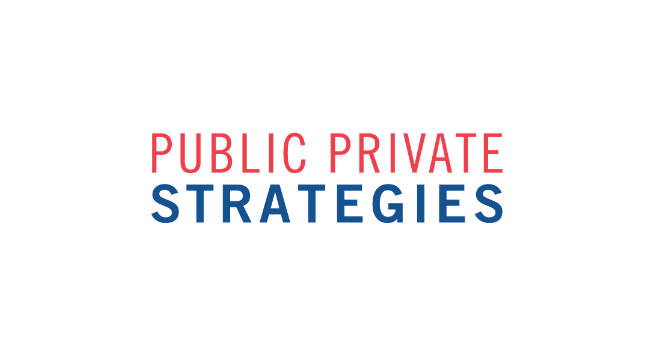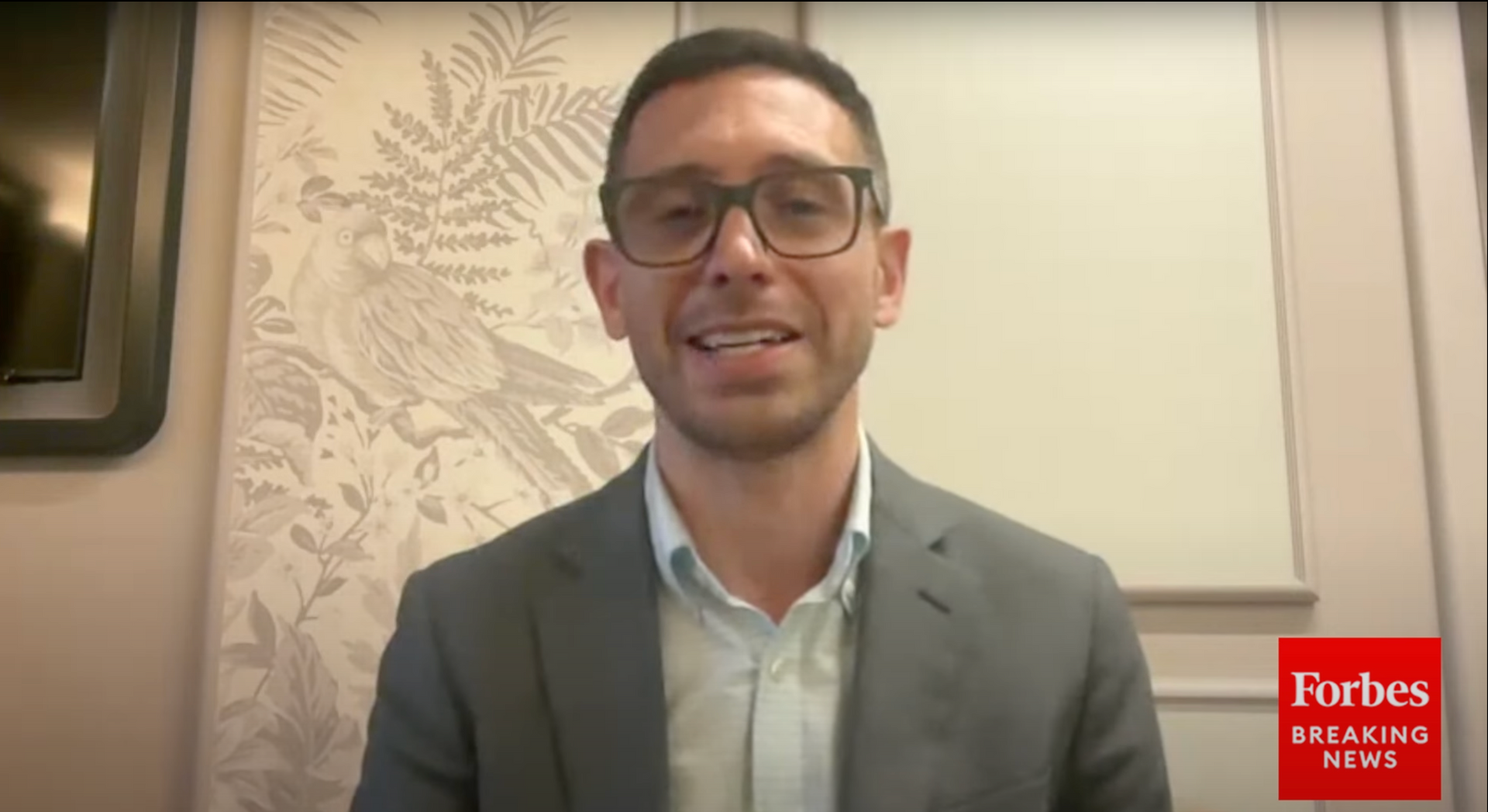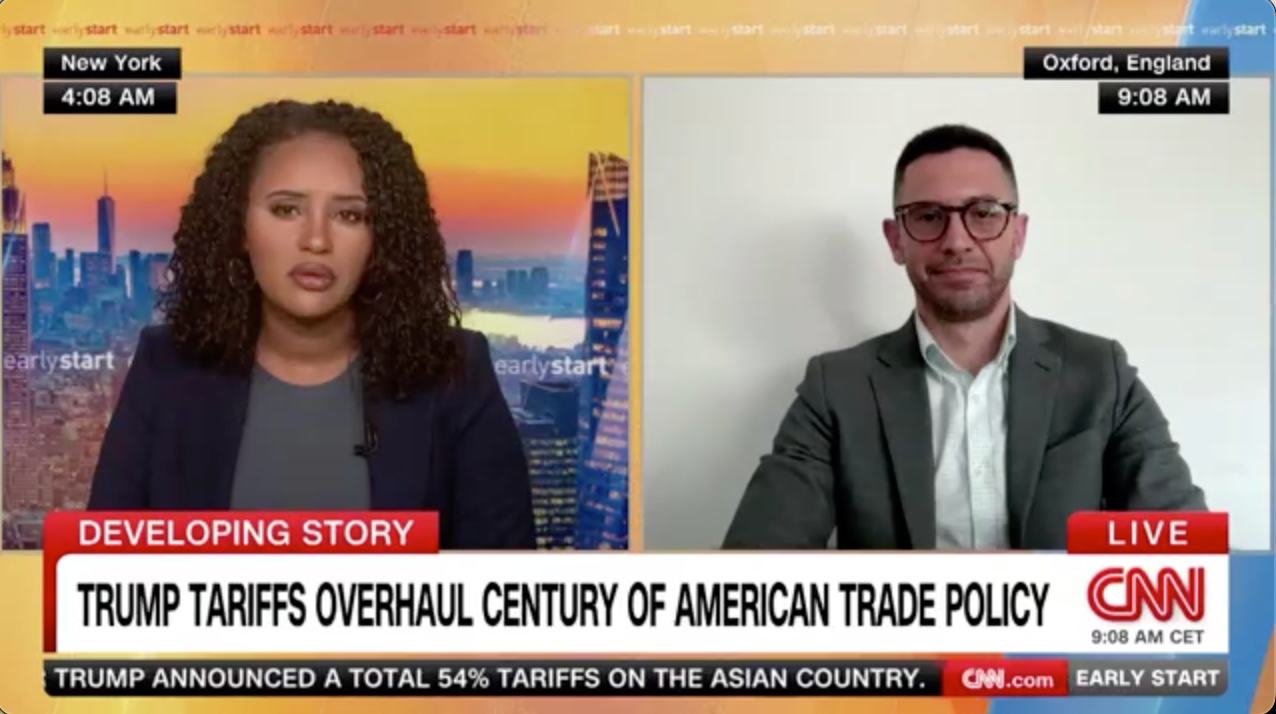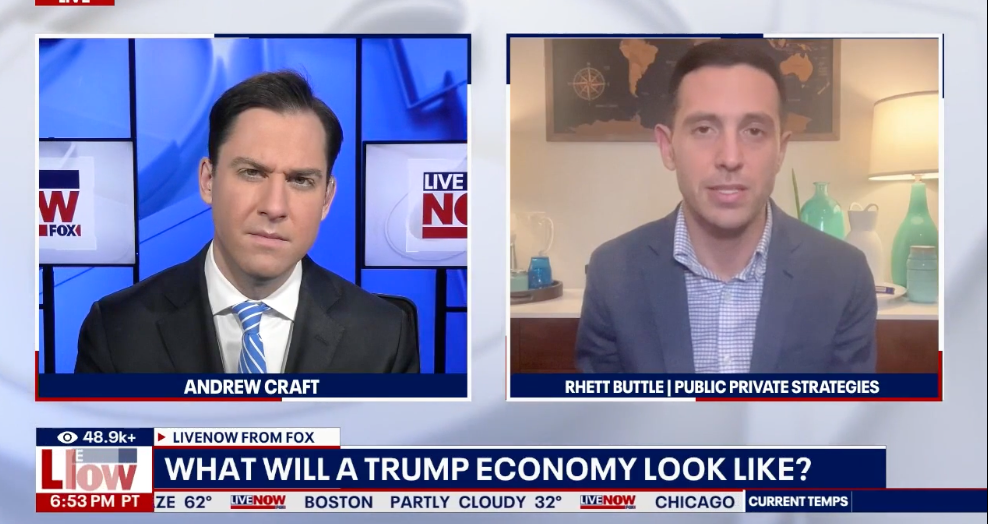3 Foundation Leaders On How Philanthropy Can Support Inclusive Small Business Recovery
Rhett Buttle • July 16, 2020

Getty
The destruction COVID-19 has wrought on small business is astounding. If we are going to recover fully—and even bounce forward to a more equitable future—we need small businesses to be front and center in our recovery efforts. Research
highlights the crucial roles small businesses play in building healthy communities and a more inclusive economy. As we continue to navigate the impacts of COVID-19, small businesses are more important than ever—and every institution must do its part to support Main Streets in every community.
So far, the federal response has been uneven and unfair. Thousands of small businesses—especially those led by Black entrepreneurs—have been left out
of federal relief efforts. President Trump earlier this month signed legislation extending the application deadline for the Paycheck Protection Program (PPP), federal aid intended to help small businesses weather the COVID-19 pandemic; yet, to date, the program has largely been a disappointment for Main Street. The uneven distribution of PPP loans once again demonstrated that federal policy can perpetuate racial inequity
and leave communities of color behind.
While the federal government has a responsibility to do more, we need all our institutions to focus on helping small businesses rebuild better. In addition to the PPP, we've seen cities respond with small business relief funds. We’ve seen fintechs, technology and other corporations step up their giving, and even philanthropy is getting in the game. For example, PayPal announced
a $530 million commitment to support Black business, strengthen minority communities and fight inequality. We need all this and more.
Some leading philanthropic foundations are already heeding the call. For example, recognizing the urgency of the COVID-19 moment, the Rockefeller Foundation
has launched a collaborative
to promote inclusive growth in 10 cities, focused on protecting communities from displacement and eliminating barriers to access capital and credit among low-wage workers and small businesses operated by women, Black and Latinx owners.
To better understand this critical moment, I asked three respected leaders how they’re thinking about the role of philanthropy in supporting small businesses. Here are some highlights from our conversations.
Mastercard Center for Inclusive Growth — Marla Blow, Senior Vice President
As the philanthropic hub of a global company, the Mastercard Center for Inclusive Growth
is well positioned to leverage expertise, technology and partnerships in support of small businesses. According to Marla, “Ensuring the survival of the critical job creation engine in the US economy is one of the highest impact opportunities that philanthropy can tackle in the post-pandemic recovery.” The Center is prioritizing support for nonprofit Community Development Financial Institutions (CDFIs), which—as Marla puts it— “are the first responders on the scene to enable capital flows and loan relief to help small businesses weather the pandemic.” Among other things, the Center helps CDFIs integrate technology
into their operations to improve service speed and efficiency, which has been critical as borrowers adjust to the COVID-19 crisis.
For example, the Center supported Grameen America
to transition its customers, who are low-income women entrepreneurs, to digital banking so they can stay competitive in an increasingly cashless economy. Marla notes: “During the pandemic, digital payments enabled Grameen America to continue disbursing same-day loans.” The Center is now expanding its partnership with Grameen America as part of a broader $250 million commitment over the next five years to support small businesses and their workers in the wake of COVID-19.
Robert Wood Johnson Foundation — Shuma Panse, Senior Program Officer
As the nation’s largest philanthropic institution dedicated solely to health, the Robert Wood Johnson Foundation
(RWJF) brings a unique perspective to the conversation about small businesses. “As a public health foundation we know that both wealth and income influence health, and believe that a strong small business ecosystem will ultimately lead to healthier, thriving communities,” Shuma told me. For RWJF, support for small businesses is not just about access to capital—though Shuma noted that this is critical, especially for Black-owned businesses, which are particularly underserved by lenders. It’s also about pursuing advocacy and philanthropy to ensure small business employees have access to affordable healthcare (a huge
concern
for small business owners too) and other benefits that promote overall well being.
Shuma also cited the importance of collaboration: “Philanthropic actors across issues and sectors—health, finance, community development, racial justice—have an opportunity to come together at this particular moment in time and step up support to small businesses, who have been uniquely and devastatingly hit by COVID-19.” As part of this, she suggested foundations and others look to small businesses to help them understand the needs and priorities of communities, noting that small business owners are trusted community leaders and can serve as champions for the issues that foundations care about.
Ewing Marion Kauffman Foundation — Jason Wiens, Policy Director - Entrepreneurship
The Ewing Marion Kauffman Foundation
recognizes that access to capital is a critical lever of philanthropic support for small businesses—but that other interventions are also needed. For example, Jason mentioned “creating entrepreneurial networks of people with new ideas and mentors to help support them; championing policies that enable risk-taking like student debt relief, affordable healthcare and child care; and advocating for less red tape at the state and local levels.” Importantly, the Kauffman Foundation is thinking about how to reduce barriers that make it difficult for people to start a business in the first place. With the American dream out of reach for too many, Jason noted that philanthropy needs to help level the playing field: “The reality in entrepreneurship today is that if you aren’t a white man who lives on the coasts, it’s going to be a lot harder to access the resources you need to start a business.” In fact, data from the Kauffman Foundation
shows that new Black-owned businesses start with only one-third the overall capital of new white-owned businesses.
Philanthropy can also help push a small business agenda to policymakers at all levels of government. As Jason put it: “Policymakers across the country are having conversations now about how to stabilize the economy, but we’ve seen what happens when entrepreneurs don’t have a prominent seat at the table—we get bureaucratic solutions that privilege big business and policies that continue to leave behind the women, people of color and rural residents who most need the support.” Philanthropic leaders like the Kauffman Foundation can help amplify these underheard voices in the halls of power.
These are three examples from philanthropic institutions that are thinking deeply about America’s health and the current economic crisis. As we move toward economic recovery, the intersection of health, wealth and racial equity are staring us right in the face—and this is no time to take our foot off the gas pedal. Small business is an untapped resource
that can have a significant impact in the lives of the millions of Americans who own and work for them. The scale of the problem means that no single actor can fix it. Philanthropy must help small businesses, especially those led by women and people of color. If we invest in small businesses, we can build back better for all.
This piece originally appeared in Forbes on July 16, 2020. You can view it online here.
Rhett Buttle is the founder of Public Private Strategies, Executive Director of the Small Business Roundtable, Founder of the NextGen Chamber of Commerce, a Senior Fellow at The Aspen Institute, and a contributor for Forbes.
WANTING MORE NEWS? SIGNUP TODAY
Contact Us

*This article was written by Scripps News Staff. President Joe Biden announced that the government will cover 100% of Hurricane Helene cleanup costs for the next several months to pay for the urgent work to clear the mud, remove downed trees and provide temporary housing. The federal support comes as residents in multiple Southeastern states are still struggling to return to normal following last week’s storm that killed over 200 people. Katie Vlietstra Wonnenberg, a small business advocate and political strategist, said it is going to take a significant amount of time to finish the cleanup, no matter how hard the federal government works. Read the entire piece on Scripps News.

WASHINGTON, D.C. – This month marks the anniversary of two pivotal pieces of legislation that are helping fuel a small business boom, the CHIPS & Science Act and the Inflation Reduction Act. Over the past four years, there has been a historic growth of American entrepreneurship across the country, with over 18 million new business applications filed, each one an act of hope and optimism in our economic future. This small business boom is fueled by investments like the Inflation Reduction Act and the CHIPS & Science Act. Rhett Buttle, Founder and CEO of Public Private Strategies, released the following statement: “As we mark the two-year anniversaries of the CHIPS & Science Act and the Inflation Reduction Act, the positive impact across the business landscape, and particularly for entrepreneurs, is unmistakable. The CHIPS & Science Act is fueling entrepreneurship opportunities by dedicating over $50 million to help develop new ideas and technologies to strengthen domestic semiconductor production and supply chain. “The Inflation Reduction Act has helped lower costs for workers and consumers, driving up demand for small businesses across the country. The healthcare provisions of the Inflation Reduction Act alone are saving millions Americans an average of $800 per year on health insurance premiums. These investments have helped fuel America’s small business boom, including a record 18 million new small business applications filed over the past four years. “We have more work to do to address the issues that business owners have consistently said are their top priorities, from lowering health care and prescription drug costs to expanding and streamlining contracting opportunities for small employers to strengthening and protecting American democracy . We remained committed to working with business leaders to address these challenges and ensure these investments are implemented effectively to grow economies and support communities all across the country.” ### About Rhett Buttle Founder & CEO, Public Private Strategies President, Public Private Strategies Institute Senior Fellow, The Aspen Institute Rhett Buttle is an entrepreneur, advocate, and one of the most trusted leaders at the intersection of business and policy in Washington, DC. He has worked for President Biden, Vice President Harris, President Barack Obama, Secretary of State Hillary Clinton, and Governor Arnold Schwarzenegger in government and campaign roles. Rhett is the founder of Public Private Strategies (PPS) and President of the Public Private Strategies Institute (PPSI), which works to bring together the public and private sectors to build coalitions, activate campaigns, and create strategic partnerships to drive policy and market outcomes. In these roles, he advises leading policy makers, foundations, nonprofits, and corporations. In addition to PPS and PPSI, he has helped found the Small Business Roundtable, Small Business for America’s Future, and the Next Gen Chamber of Commerce. He is also a Senior Fellow at the Aspen Institute and a regular contributor to Forbes, where he writes on the intersection of business, policy, and politics. Rhett has also been featured in The New York Times, CNN, The Wall Street Journal, and several other business publications. About Public Private Strategies Public Private Strategies (PPS) creates opportunities where the public and private sectors meet. We bring together diverse allies including foundations, associations, corporations, small businesses, and entrepreneurs to solve pressing societal challenges. By harnessing the power of the private sector, we build coalitions, activate campaigns, and create strategic partnerships to drive desired policy and market outcomes. Learn more at www.publicprivatestrategies.com .

WASHINGTON, D.C. – This month marks the anniversary of two pivotal pieces of legislation that are helping fuel a small business boom, the CHIPS & Science Act and the Inflation Reduction Act. Over the past four years, there has been a historic growth of American entrepreneurship across the country, with over 18 million new business applications filed, each one an act of hope and optimism in our economic future. This small business boom is fueled by investments like the Inflation Reduction Act and the CHIPS & Science Act. Rhett Buttle, Founder and CEO of Public Private Strategies, released the following statement: “As we mark the two-year anniversaries of the CHIPS & Science Act and the Inflation Reduction Act, the positive impact across the business landscape, and particularly for entrepreneurs, is unmistakable. The CHIPS & Science Act is fueling entrepreneurship opportunities by dedicating over $50 million to help develop new ideas and technologies to strengthen domestic semiconductor production and supply chain. “The Inflation Reduction Act has helped lower costs for workers and consumers, driving up demand for small businesses across the country. The healthcare provisions of the Inflation Reduction Act alone are saving millions Americans an average of $800 per year on health insurance premiums. These investments have helped fuel America’s small business boom, including a record 18 million new small business applications filed over the past four years. “We have more work to do to address the issues that business owners have consistently said are their top priorities, from lowering health care and prescription drug costs to expanding and streamlining contracting opportunities for small employers to strengthening and protecting American democracy . We remained committed to working with business leaders to address these challenges and ensure these investments are implemented effectively to grow economies and support communities all across the country.” ### About Rhett Buttle Founder & CEO, Public Private Strategies President, Public Private Strategies Institute Senior Fellow, The Aspen Institute Rhett Buttle is an entrepreneur, advocate, and one of the most trusted leaders at the intersection of business and policy in Washington, DC. He has worked for President Biden, Vice President Harris, President Barack Obama, Secretary of State Hillary Clinton, and Governor Arnold Schwarzenegger in government and campaign roles. Rhett is the founder of Public Private Strategies (PPS) and President of the Public Private Strategies Institute (PPSI), which works to bring together the public and private sectors to build coalitions, activate campaigns, and create strategic partnerships to drive policy and market outcomes. In these roles, he advises leading policy makers, foundations, nonprofits, and corporations. In addition to PPS and PPSI, he has helped found the Small Business Roundtable, Small Business for America’s Future, and the Next Gen Chamber of Commerce. He is also a Senior Fellow at the Aspen Institute and a regular contributor to Forbes, where he writes on the intersection of business, policy, and politics. Rhett has also been featured in The New York Times, CNN, The Wall Street Journal, and several other business publications. About Public Private Strategies Public Private Strategies (PPS) creates opportunities where the public and private sectors meet. We bring together diverse allies including foundations, associations, corporations, small businesses, and entrepreneurs to solve pressing societal challenges. By harnessing the power of the private sector, we build coalitions, activate campaigns, and create strategic partnerships to drive desired policy and market outcomes. Learn more at www.publicprivatestrategies.com .




